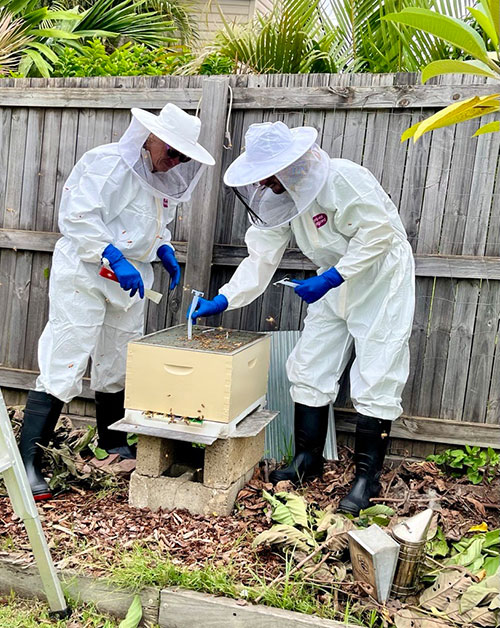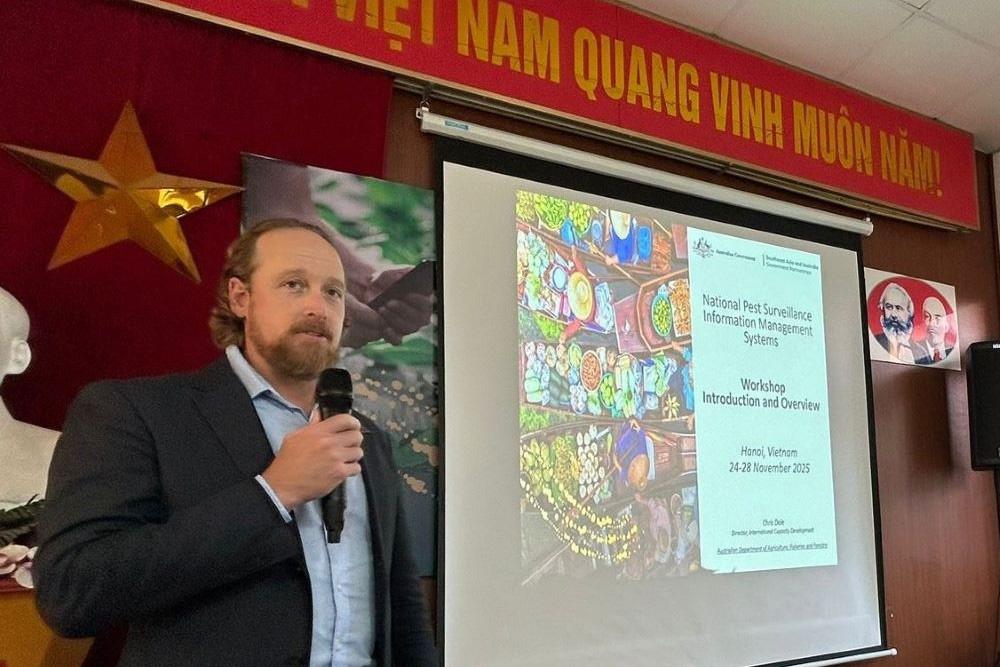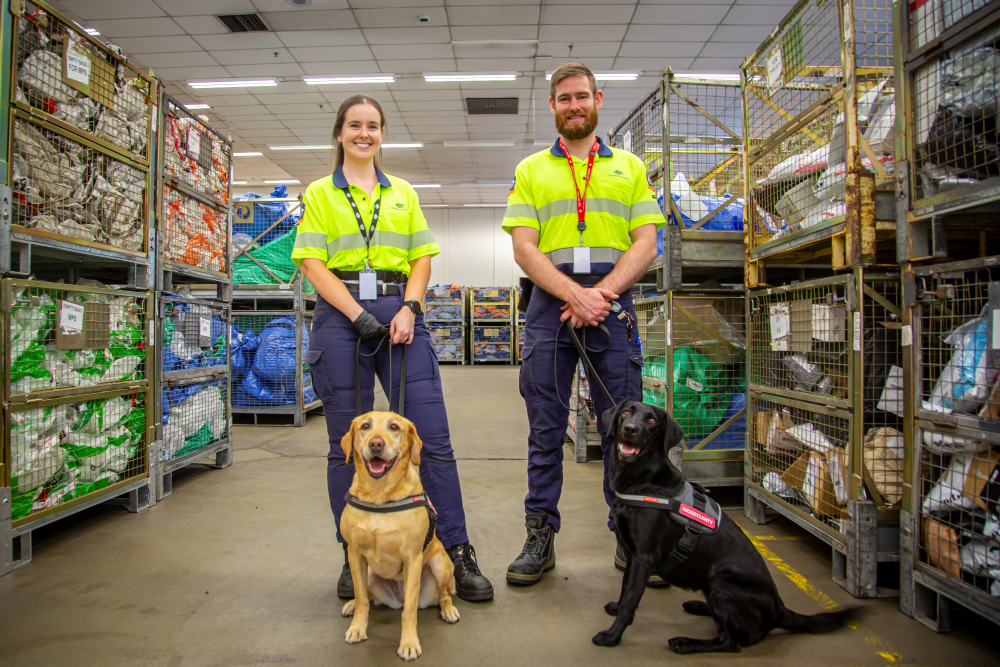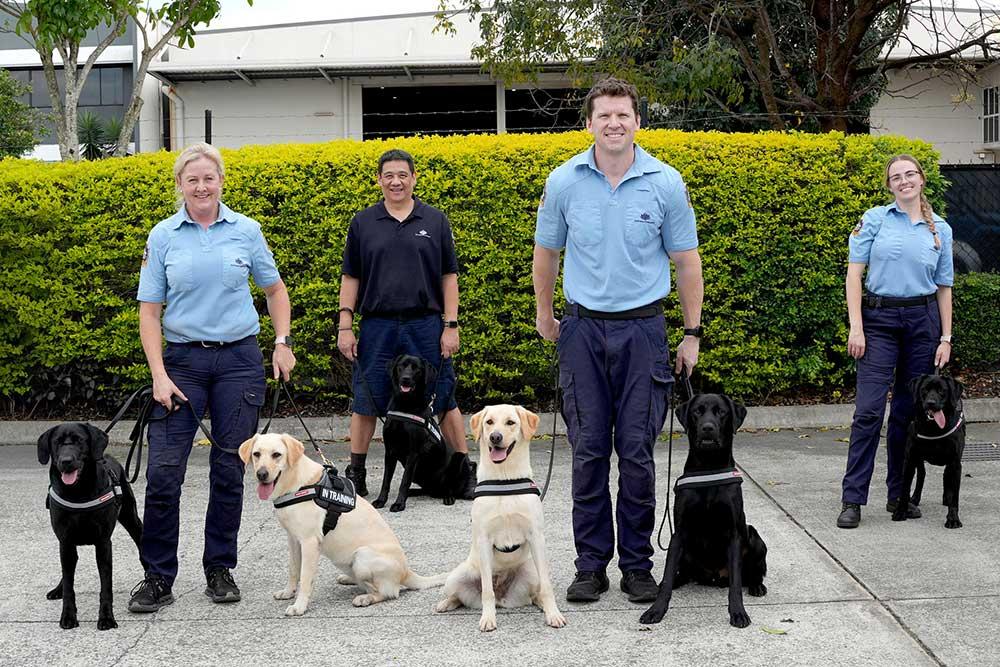Queensland Beekeepers’ Association
The Queensland Beekeepers’ Association (QBA) has demonstrated outstanding leadership and a strong commitment to ongoing collaboration with government and other industry sectors, advocating for biosecurity within the beekeeping community. This has been especially evident in their response to multiple detections of varroa mite (Varroa jacobsoni and Varroa destructor) and Asian honey bee in Queensland.
The QBA acted swiftly when Varroa destructor was first detected in New South Wales in June 2022, working closely with Biosecurity Queensland to address complex challenges affecting commercial and recreational beekeepers. The QBA prioritised education and support for members by providing clear, evidence-based communication about biosecurity risks, mitigation strategies and regulatory requirements. They played a central role in response operations and ensured industry perspectives were heard and addressed.
When some restricted movements of varroa mite carriers were permitted into Queensland from other jurisdictions, the QBA played a pivotal role in the design and implementation of permit conditions. Their work helped protect Queensland’s biosecurity system and maintain continuity for the state’s beekeeping businesses. They worked alongside Biosecurity Queensland in providing valuable information for rapid risk assessment as the situation changed in other jurisdictions. This collaboration and ongoing commitment supported business continuity and allowed for the safe movement of tens of thousands of hives back into Queensland while preventing the introduction of varroa mite.
In response to a new detection of Varroa jacobsoni in Queensland, the QBA assisted in a volunteer-led surveillance effort that played a critical role in the successful containment of the incursion. Through their network, they facilitated 27 volunteers over 18 weeks to assist Biosecurity Queensland with surveillance. They successfully located 15 European honey bee colonies and one Asian honey bee colony – the latter being the original source of the Varroa jacobsoni detection. This early effort enabled swift eradication activities and gave government agencies crucial time to destroy host species, significantly reducing the risk of further spread.
The QBA’s impact extends beyond incident response. They work with a range of stakeholders on biosecurity matters to build resilience and readiness for future biosecurity threats, including honey packers, researchers, suppliers, brokers, as well as local, state and Australian Government agencies. The QBA was instrumental in the development and roll out of Queensland’s passive surveillance system Bee 123. This collaboration showcases their commitment to proactive planning that improves biosecurity outcomes for the Australian honey bee industry.
Now that varroa mite is present in Queensland, the QBA continues to collaborate as the next phases of varroa mite establishment are collectively navigated. This includes working alongside Biosecurity Queensland on proposed regulatory changes under state legislation, such as reclassification of the pest and rescinding of the varroa mite biosecurity zone.
The QBA’s contributions have been essential to minimising the impact of multiple biosecurity incidents. Their work protects Queensland’s vital honey bee population and supports critical pollination services that sustain Australian agriculture and biodiversity.
Watch a video about their work
Introduction
This is the accessible text transcript of the 2025 Australian Biosecurity Awards winner video featuring Jacob Stevens.
Transcript
Hi, I’m Jacob Stevens, the Vice President of the Queensland Beekeepers’ Association.
It is a great privilege to accept this award on behalf of the Queensland Beekeepers’ Association.
Thank you to Biosecurity Queensland for the nomination.
Over the past few years, the Queensland Beekeepers’ Association and Biosecurity Queensland have worked collaboratively on a number of different biosecurity threats.
From Varroa destructor to Apis cerana and Varroa jacobsoni being detected at the port of Brisbane, the Queensland Beekeepers’ Association has brought a commonsense approach and a great deal of expertise to these responses.
This has enabled the industry to have a positive outcome in the case of Varroa jacobsoni and Apis cerana being detected at the Port of Brisbane and has seen the transition from eradication to management of Varroa destructor be managed in a way to minimise biosecurity risk.
Unfortunately, Varroa destructor has become endemic in Australia and this ongoing collaboration will need to continue to support the viability of the beekeeping industry in Queensland and across Australia.
Photos




